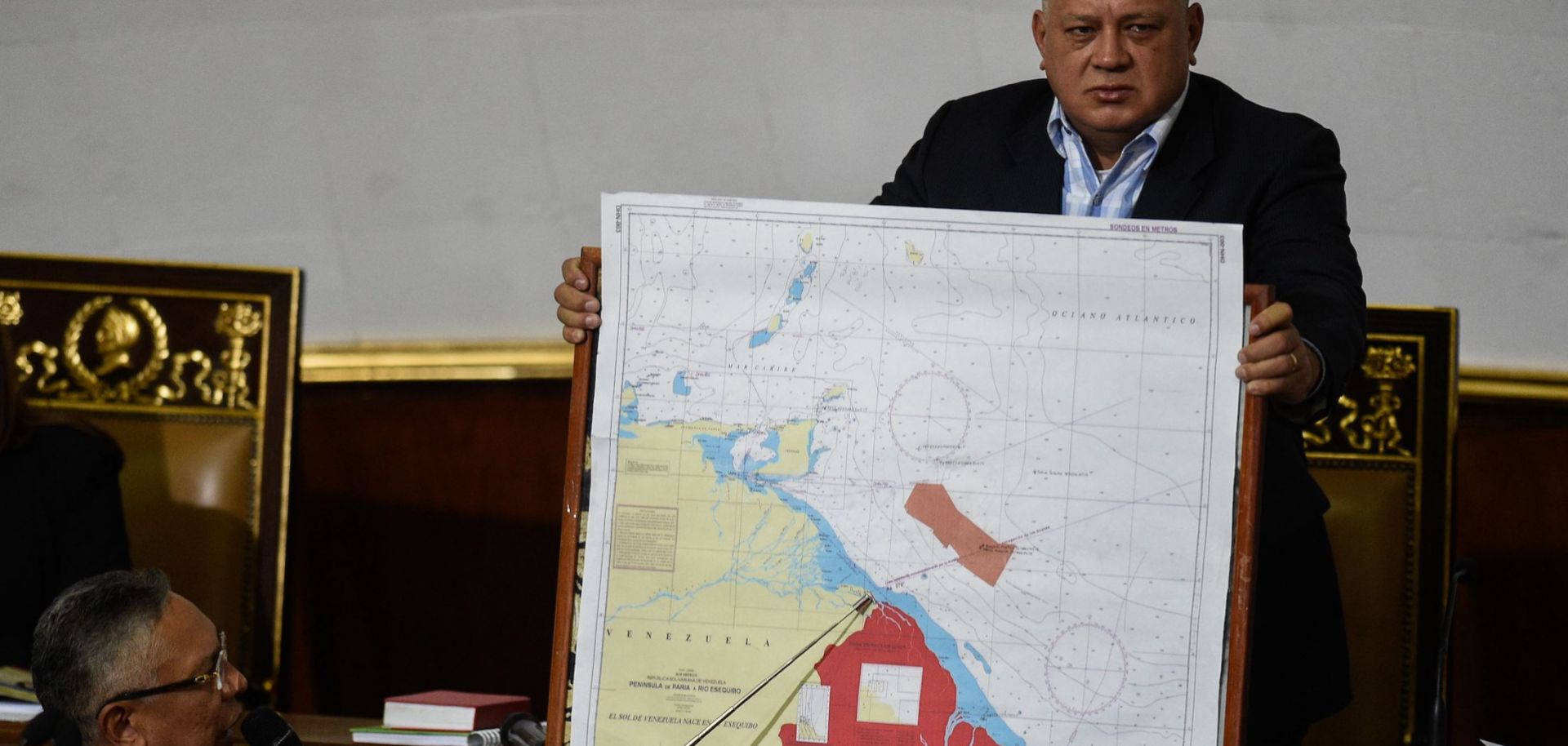Venezuelans voted on Dec. 3 to implement the creation of a new state — Guayana Esequiba — in territory currently disputed by Venezuela and Guyana. Since then, Venezuelan President Nicolas Maduro has issued a flurry of announcements suggesting that Venezuela will soon move to annex the territory west of the Essequibo River. Shortly after the votes, he designated a general as the sole administrator of Guayana Esequiba state and announced the creation of an Integrated Operational Defense Zone — ZODI Guayana Esequiba — to be headquartered in the border town of Tumeremo. Videos published by a strategic operational commander of the Venezuelan military indicate that land is being cleared near La Camorra to create an airstrip, which he said would serve as a "logistical support point." On Dec. 7, Maduro announced the construction of 120 homes for the "Esequibano-Venezuelan people" in San Martin de Turumban, a small town that sits directly on the disputed border, which may become Venezuela's launch point for additional incursions into Guyana's territory. While Guyana's President Irfaan Ali has stated his military is preparing for the "worst case scenario," the 4,150 soldiers in Guyana's military are too few to secure the entire land border.
Even so, any military land incursion into Guyana would run into significant challenges, as the dense jungles in the border region would make major military movements largely impossible. The only paved road running from Venezuela to Guyana traverses through Brazilian territory, and Brazilian President Luiz Inacio Lula da Silva recently deployed 600 soldiers and armored vehicles to the northern Boa Vista border region to ensure neither country can take advantage of its infrastructure. In the coming weeks, Maduro will likely continue to make announcements challenging the territorial sovereignty of Guyana. If Venezuela does escalate militarily, it will likely do so on a symbolic level, constrained by the above factors, rather than undertake a full-scale invasion. That said, if Venezuela builds structures in the disputed territory, the risk of localized clashes with local security forces could lead the conflict to escalate.




